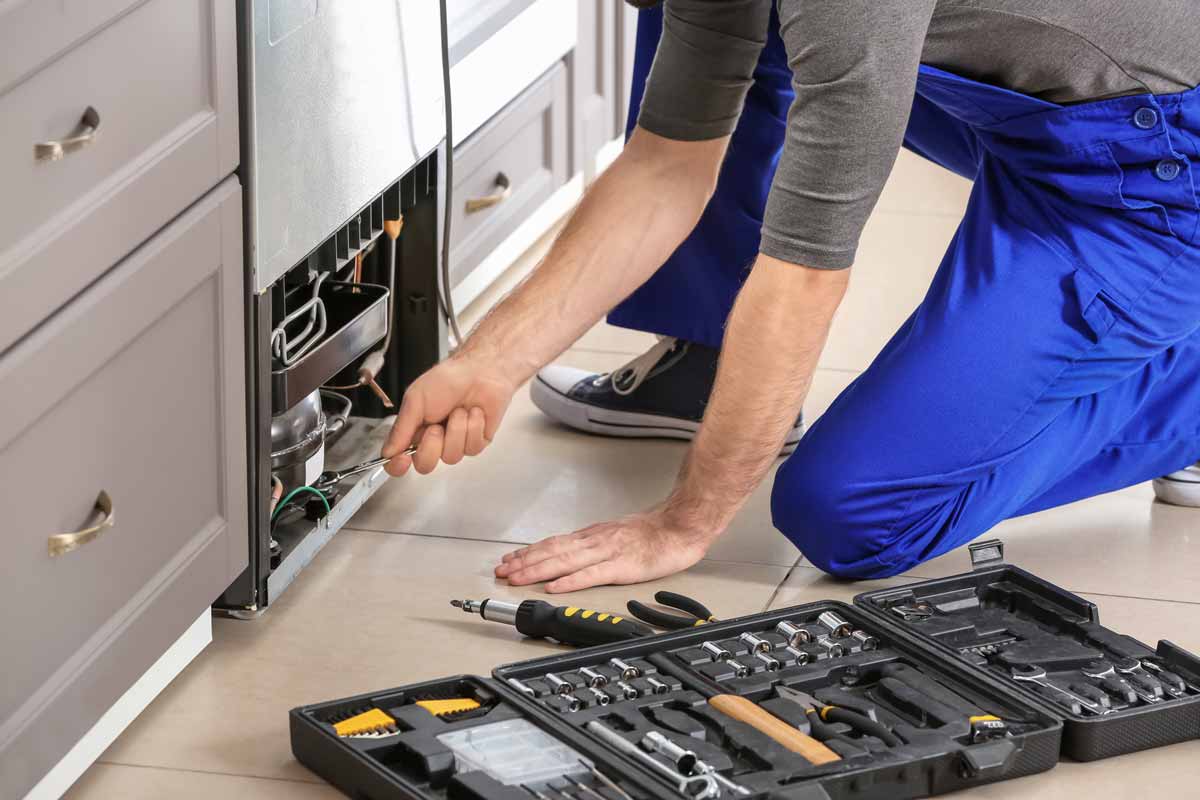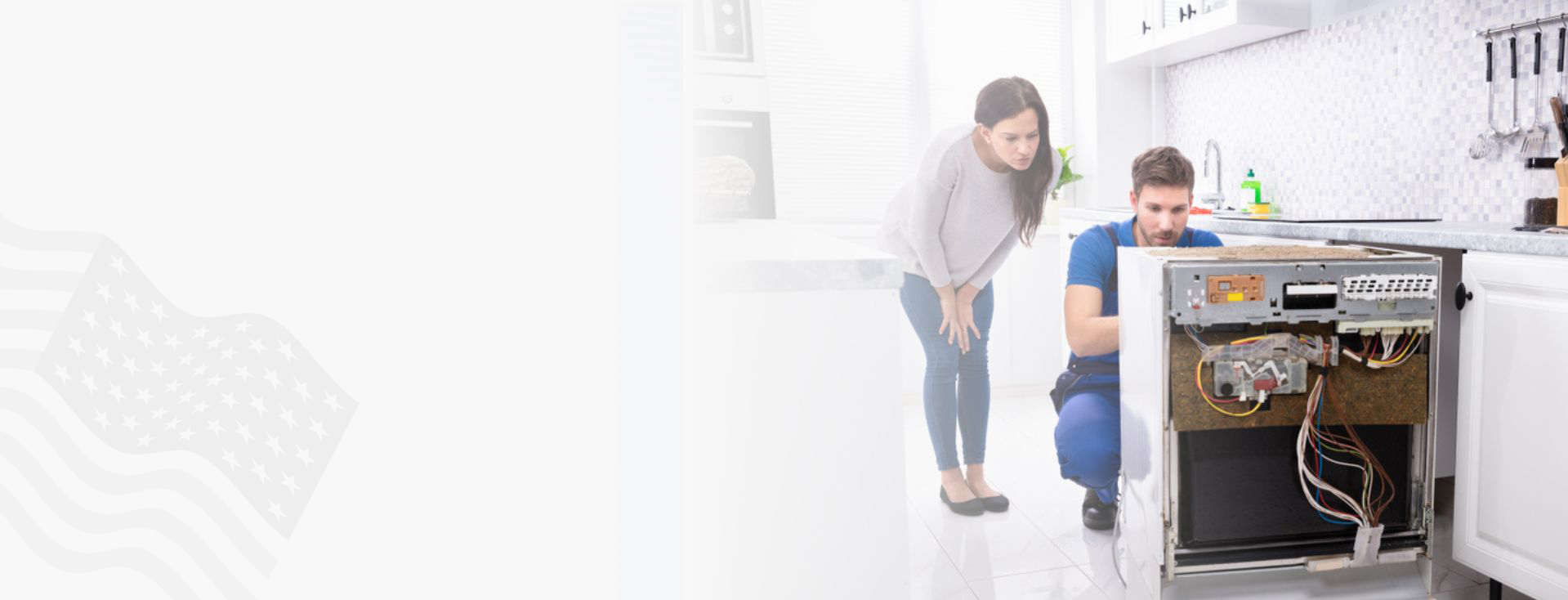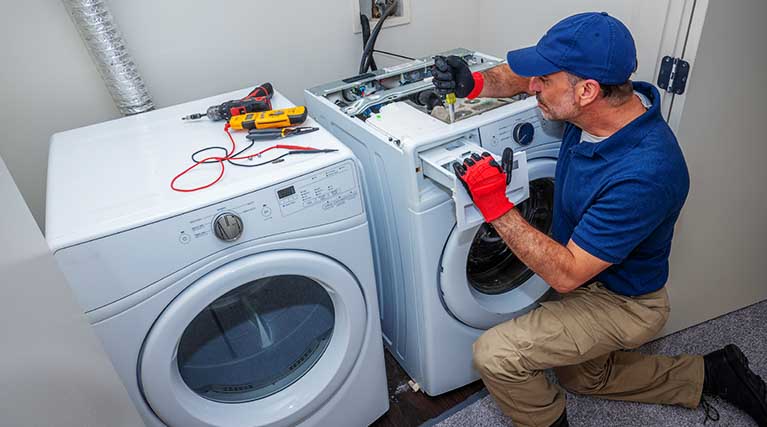The Ultimate Guide to Comprehending Device Repair Service at Home
When your fridge stops cooling or your stove rejects to heat, it can feel frustrating. Understanding appliance repair at home can conserve you money and time. You'll discover to identify signs and symptoms, make use of important tools, and comply with a methodical troubleshooting procedure. Yet prior to you begin, there are vital safety precautions you require to consider. What are the most typical problems, and exactly how can you fix them? Let's discover the fundamentals.
Usual Home Appliance Troubles and Their Signs
When your devices start breaking down, it's vital to acknowledge the indicators beforehand. Overlooking them can lead to bigger problems and costly fixings. If your refrigerator isn't cooling down correctly, you may notice warm areas or condensation forming. This could show a stopping working compressor or an obstructed vent.Your dishwashing machine might show problems through unclean recipes or unusual sounds during cycles. If you listen to grinding or clanking, it's time to investigate.A cleaning maker that will not rotate or drain can leave you with soaked laundry, recommending a clogged up drainpipe or a malfunctioning pump.Lastly, if your oven's temperature seems off or it takes permanently to preheat, you may be managing a defective thermostat. By remaining alert to these symptoms, you can address concerns prior to they intensify into significant repairs.
Crucial Tools for Appliance Fixing
When you're tackling home appliance repairs in your home, having the right devices is vital. Basic hand tools like screwdrivers and pliers will aid you dismantle and repair various home appliances, while electric testing gadgets guarantee you're working safely with wiring. Let's review what you need to get going on your repair work trip.
Standard Hand Tools
Having the right devices is important for effective home appliance repair work in your home. Begin with a dependable screwdriver collection, including both flathead and Phillips types, as screws prevail in appliance setting up. Pliers are additionally important; they assist with gripping, twisting, and reducing wires or small components. A pair of needle-nose pliers can get to limited spots conveniently. You'll require a good adjustable wrench for tightening up or loosening nuts and screws. An utility knife comes in handy for cutting via product packaging or insulation. Ultimately, do not neglect a strong workbench or surface to safely organize your tools and parts. With these basic hand tools, you'll be well-prepared to take on most home appliance repair work that come your method.
Electrical Screening Devices
Together with fundamental hand devices, electrical screening tools play a crucial function in appliance fixing. These devices help you identify electric problems and guarantee devices work safely. A multimeter is crucial; it gauges voltage, present, and resistance, enabling you to determine problems rapidly. A non-contact voltage tester is another essential, allowing you discover real-time wires without making straight get in touch with, boosting your safety. Secure meters are wonderful for determining existing flow in cables without separating them, saving you time and initiative. Furthermore, circuit testers can quickly examine if electrical outlets are operating appropriately. By utilizing these devices, you'll enhance your troubleshooting procedure and improve your fixing abilities, making device upkeep a lot less complicated.
Step-by-Step Guide to Diagnosing Device Issues
When your device breaks down, it can be aggravating, however detecting the issue does not need to be frustrating. You'll discover to identify common problems and use effective repairing techniques. Let's walk via the actions to get your device back in functioning order.
Common Device Problems

Troubleshooting Strategies Discussed

Repairing Significant Cooking Area Appliances: A Closer Look
Have you ever before wondered how to take on usual concerns with your kitchen home appliances? Repairing significant kitchen area home appliances like fridges, ovens, and dish washers can be simpler than you assume. Start by determining the trouble-- whether it's a fridge not cooling down or an oven that won't heat. Often, a basic reset or examining the source of power can address the issue.For fridges, clean the condenser coils and check the door seals. If your oven's not heating, examine the home heating component and thermostat. Dishwashing machines could simply need a tidy filter or a reset to get them back at work. Always unplug the home appliance before diving right into fixings to guarantee your safety.Don' t forget to seek advice from the customer manual for specific troubleshooting suggestions connected to your design. With a little bit of patience and the right tools, you can confidently deal with device repair services and save cash in the process!

Troubleshooting Laundry Devices: Tips and Techniques
When your washing appliances start acting up, it can feel frustrating, but fixing them doesn't have to be a headache. Start by inspecting the power supply. get more info Validate the device is connected in and the outlet is working. Next, evaluate the door or lid switch; a faulty button can prevent the machine from operating.For washers, if it's not spinning, inspect for unbalanced tons. Redistributing the clothes could resolve the concern. If your clothes dryer isn't home heating, tidy the lint filter and examine the air vent for blockages.Listen for unusual noises; they can indicate an issue. If your home appliance is leaking, check the tubes for splits or loosened links. Record any type of mistake codes displayed on electronic displays, as they can assist you in determining the problem. Lastly, consult the customer handbook for particular troubleshooting pointers connected to your version.
Security Preventative Measures to Take Throughout Repairs
Before you begin any kind of home appliance repair services, it's necessary to prioritize security to avoid accidents or injuries. Initially, unplug the device or switch off the circuit breaker to guarantee no power reaches it while you work. Usage protected devices to decrease the risk of electric shock. Wear safety and security goggles and gloves to shield on your own from sharp edges or debris (Fixes washers and dryers Oro valley Dependable Appliance Repair).Make particular your office is tidy and well-lit, so you can see what you're doing. Maintain youngsters and animals far from the location to avoid distractions and prospective dangers. If you're dealing with gas appliances, be added cautious; look for leakages before proceeding.Take your time, and do not hurry through fixings. If you feel unsure concerning any kind of action, it's far better to pause and research than to think. Adhering to these precautions will aid develop a much safer setting for your do it yourself home appliance fixing task
When to Call a Professional for Help
Exactly how do you understand if it's time to call a specialist for device repair services? If you have actually tried basic troubleshooting without success, it's a clear sign. If your appliance still will not start or shows unusual sounds after resetting it, do not hesitate to look for specialist help.When you observe leaks, smoke, or burning smells, focus on security and call a professional immediately. These issues can bring about more significant damages or position risks to your home.Also, if your appliance is under warranty, getting in touch with a professional is usually the most effective course. They can assure that repair work won't nullify your warranty, saving you cash in the long run.Finally, if you're not sure or unpleasant with complicated repair work, it's a good idea to leave it to the experts. Bear in mind, dealing with difficult problems without the right expertise can bring about costly blunders. Trust a professional when doubtful!
Frequently Asked Inquiries
Just How Can I Protect Against Home Appliance Troubles in the Future?
To stop device problems in the future, you should carry out routine maintenance, check for wear and tear, clean filters, and avoid overloading. Remaining proactive will certainly aid extend their life expectancy and keep them running efficiently.
What Are one of the most Typical Do It Yourself Home Appliance Fixing Mistakes?
You might forget safety preventative measures, miss troubleshooting steps, or make use of incorrect tools when trying DIY appliance repairs. Hurrying the process or neglecting supplier standards can result in more considerable problems and expensive errors. Remain client and educated!
Just how Do I Know if a Component Needs Substitute?
You can tell if a component requires substitute by examining for uncommon sounds, leakages, or irregular efficiency. If the device battles to run correctly or shows visible damages, it's most likely time for a replacement.
Can I Use Generic Parts for Device Repairs?
Yes, you can use common components for appliance repair work, but determine they're compatible - Maytag Washing machine repair Dependable Refrigeration & Appliance Repair Service. Common parts could conserve you money, yet they could influence efficiency or long life, so weigh your choices thoroughly prior to making a choice
What Warranties Cover Device Repair Works?
The majority of appliance service warranties cover fixings for producing flaws, yet they commonly omit damages from misuse. Check your warranty terms carefully, as some may require utilizing certified service technicians and initial components for protection to continue to be valid.